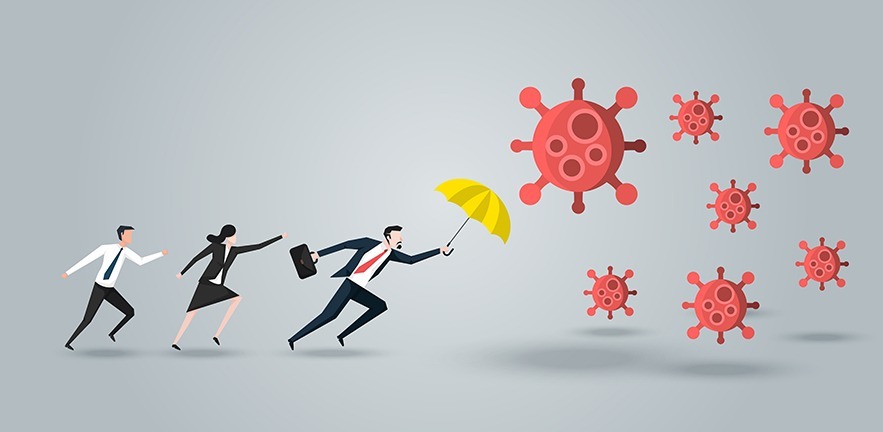Dr Kamiar Mohaddes says the pandemic’s economic situation is ‘really different’ from past crises in that the combination of supply, demand, and confidence shocks is unprecedented, in a webinar for the What’s Next? How to Survive and Thrive in a Post COVID-19 World series.
Here’s an opportunity to see his presentation and read key findings:
The economic situation flowing from the coronavirus pandemic is distinct from past economic crises in many respects, Dr Kamiar Mohaddes, University Senior Lecturer in Economics & Policy at Cambridge Judge Business School, told a webinar on 1 July.
“This time is really different, because unlike a typical macroeconomic shock, the COVID-19 pandemic and policies required to mitigate its spread have economic consequences involving supply, demand, and confidence. The combination is unprecedented.”
He added that 2020 will mark the first time since the Great Depression of the 1930s that both advanced and emerging economies will be in recession.
This time is also really different because services are being negatively affected worse than manufacturing and on a global scale, while in past crises the effect on services has been “relatively muted”, Kamiar said.
But given the hit to services, does this mean that we will have a quicker recovery due to a sharp increase in consumer demand?
“It’s not necessarily the case” that consumer demand will jump back up as governments ease lockdowns around the world, he said, because many consumers may minimise social interactions because they fear a second wave of infections.
“Consumers may be more cautious,” he told the webinar, noting that in China, the first country hit by coronavirus, services have lagged behind manufacturing in the pace of recovery. “This is what we should expect to be happening globally.”
The webinar, “The Macroeconomic Impacts of COVID-19”, is part of the School’s series of webinars entitled “What’s Next? How to Survive and Thrive in a Post-COVID-19 World”.
Other ways the current crisis has been different from past economic upheavals has been the strength of policy responses regarding both monetary policy and fiscal measures such as job furlough schemes to protect employment. Even the “informal sector” of the economy has to be protected, as this sector was not able in the pandemic to act as a “shock absorber” as it has in past economic crises.
Although economic activity is slowly picking up, “we are seeing a striking divergence of financial markets from the real economy”, Kamiar said.
The S&P500 stock index has just had its strongest quarterly performance in more than two decades and markets are expecting a V-shaped recovery, but Kamiar predicts that the recovery would not happen as rapidly as financial markets seem to expect.
“It all depends on whether there’s a second wave of infections in 2020, and what happens in 2021. There’s also huge uncertainty about the economy – we’ve never experienced this cocktail of supply and demand shocks, combined with the general uncertainty and the health crisis at the same time.” “The bottom line is that there’s huge uncertainty about the path of the recovery, and we have to be very careful in assuming that the quick and strong policy responses that we’ve seen means that the situation will improve very rapidly,” he said. “Without vaccines we’ll have further containment measures which will have an impact on consumption and investment, thereby prolonging our recovery.”


